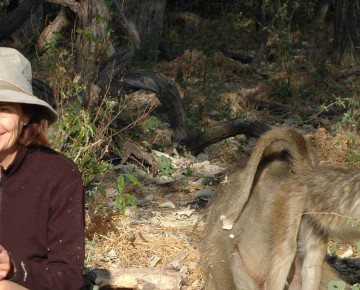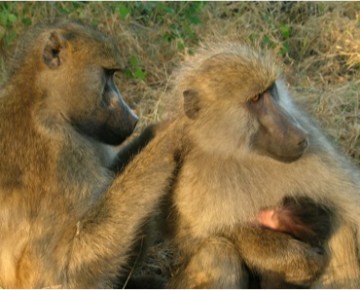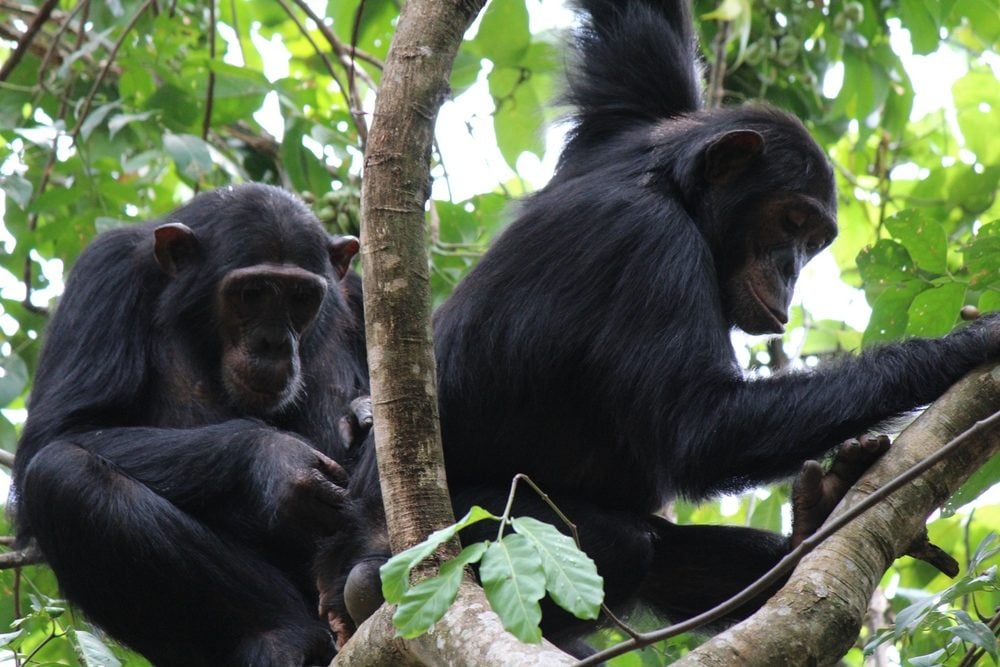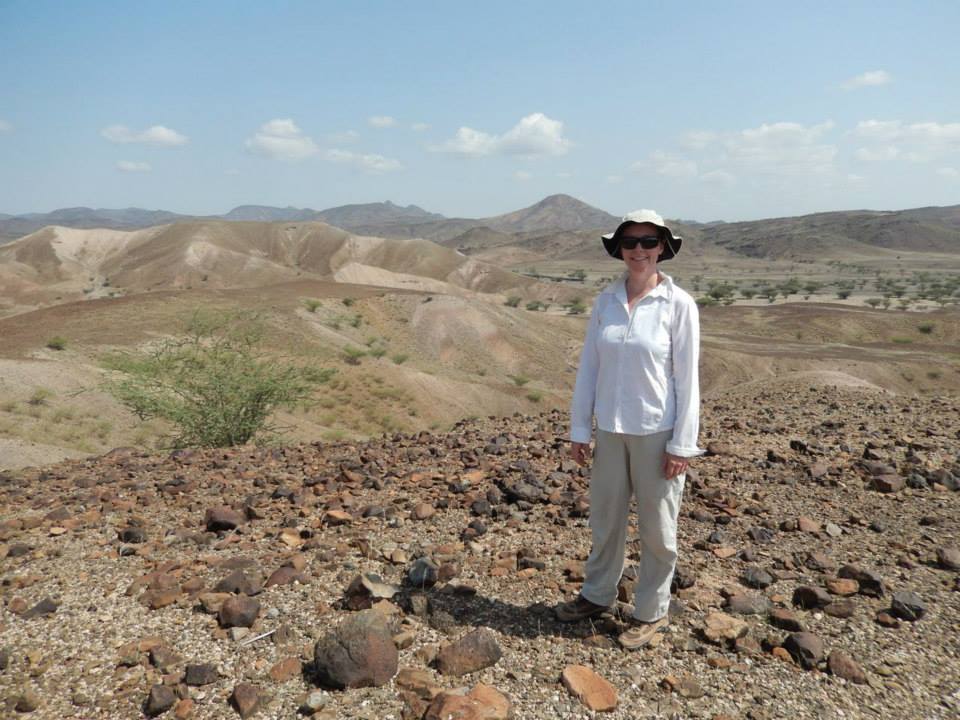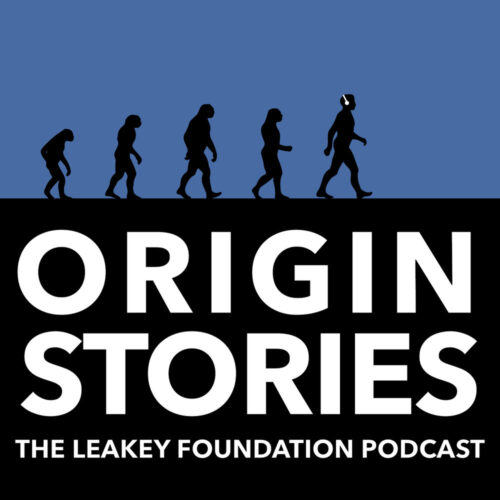Origin Stories
For our sixth episode we have the first in a collection of stories looking at human behavior and how it’s been shaped by evolution. Dorothy Cheney and Robert Seyfarth share their research on the baboon mind.
[soundcloud url=”https://api.soundcloud.com/tracks/230384817″ params=”auto_play=false&hide_related=false&show_comments=true&show_user=true&show_reposts=false&visual=true” width=”100%” height=”450″ iframe=”true” /]
Dorothy Cheney and Robert Seyfarth study the communication and social behavior of wild non-human primates. They received their PhDs from Cambridge University, and since 1985 they have held positions at the University of Pennsylvania. Cheney is a professor of biology and Seyfarth is a professor of psychology.
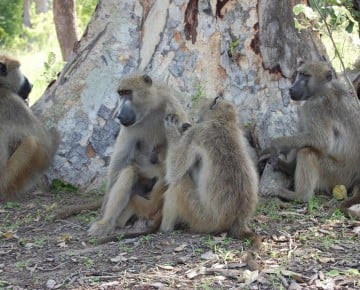
In this episode, they tell us about their long-term (1992-2008) study of free-ranging baboons in the Okavango Delta in Botswana. As with other primates, kinship and rank are tremendously important to these baboons. However, in this sophisticated society, there seems to be a certain attentiveness, perhaps an obsession with other individuals’ relationships, including individuals from other species! Does this behavior help them to form bonds, maintain them, and form strategic alliances with others? Is this similar to how humans create social bonds and alliances? Humans may understand that having close relationships with others can contribute to our ability to reproduce and survive, but does this apply to baboons? If so, what role does personality play in their survival?
Listen and learn how these field researchers have approached these and other questions about how natural selection shapes the primate mind.
Thank you to Robert Seyfarth and Dorothy Cheney.
This show is a project of The Leakey Foundation. You can help fund this podcast and the research we talk about by making a gift to The Leakey Foundation. If you give now, your donation will be doubled! Click here!
Links:
Robert Seyfarth and Dorothy Cheney’s website
Book: Baboon Metaphysics
“How Baboons Think (Yes, Think)” New York Times
Credits:
Produced by Meredith Johnson
Edited by Audrey Quinn
Original music and scoring by Henry Nagle
Production help from Schuyler Swenson
Sponsors: Being Human and the Baumann Foundation
Adept Word Management
